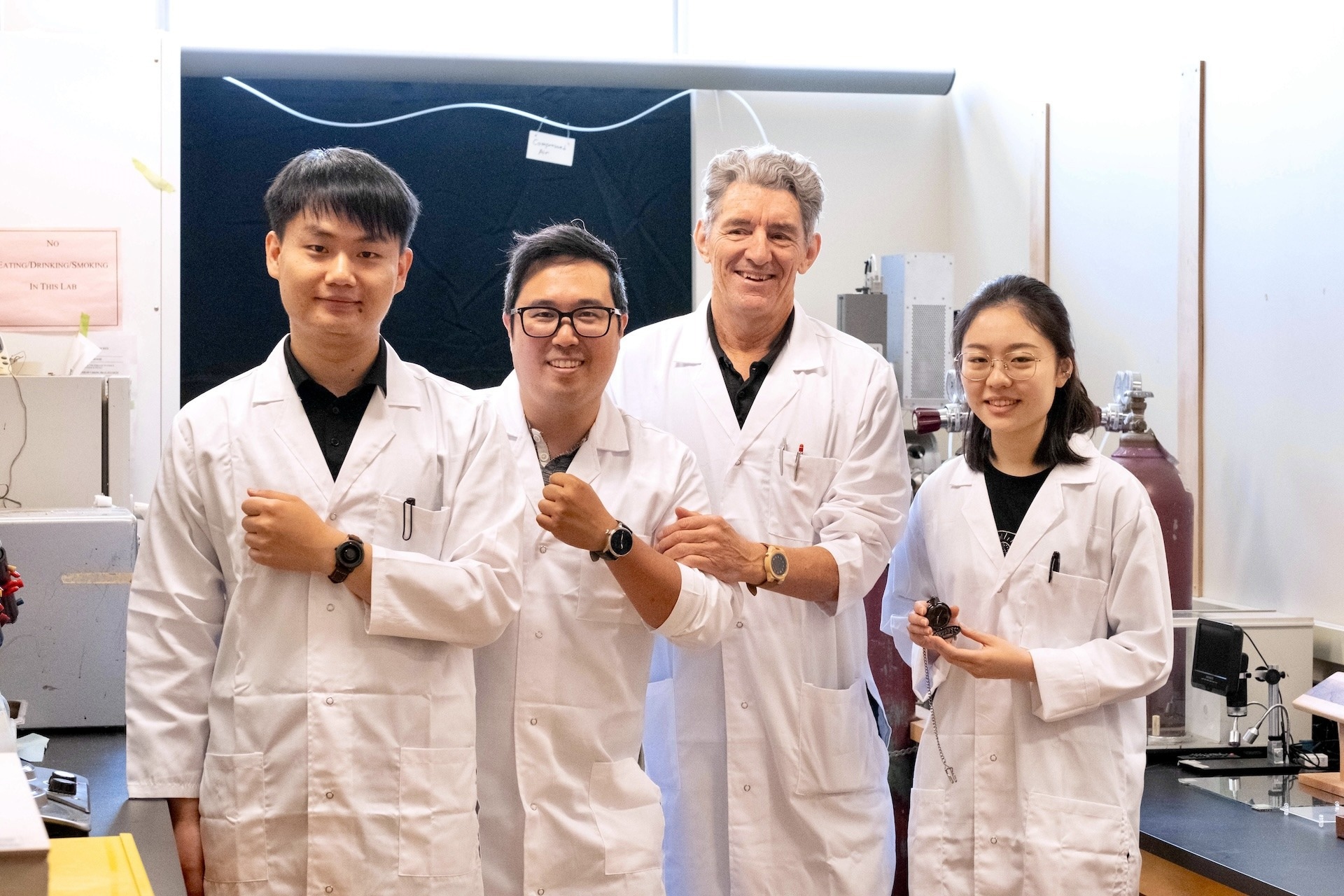Researchers at the University of British Columbia have accidentally discovered a new super-black substance that absorbs nearly all light. This breakthrough opens the door to applications in fine jewelry, solar cells, and precision optical equipment.
 UBC forestry researchers have created a new super-black material that absorbs almost all light. From left, Dengcheng Feng, Kenny Cheng, Dr. Philip Evans and Sara Xu. Image Credit: UBC Forestry/Ally Penders
UBC forestry researchers have created a new super-black material that absorbs almost all light. From left, Dengcheng Feng, Kenny Cheng, Dr. Philip Evans and Sara Xu. Image Credit: UBC Forestry/Ally Penders
Professor Philip Evans and Ph.D. student Kenny Cheng were working with high-energy plasma to enhance wood's water-repellent properties. Unexpectedly, when they treated the cut ends of wood cells with this method, the surfaces became intensely black.
Texas A&M University's Department of Physics and Astronomy measured the material and found that it reflected less than one percent of visible light, absorbing almost all incoming light.
Rather than discarding this unanticipated result, the team chose to pivot their research toward developing super-black materials, thus introducing a novel approach in the quest for the darkest materials on Earth.
Ultra-black or super-black material can absorb more than 99 per cent of the light that strikes it – significantly more so than normal black paint, which absorbs about 97.5 per cent of light.
Dr. Philip Evans, Professor, Faculty of Forestry, University of British Columbia
Super-black materials are becoming increasingly valuable in various fields, including astronomy, where ultra-black coatings minimize stray light and enhance image resolution. They also improve the efficiency of solar cells and find applications in art and luxury consumer products like watches.
The research team has created prototype commercial products using their super-black wood, focusing initially on watches and jewelry, with plans to explore additional commercial uses.
Wonder Wood
The team's discovery, named Nxylon (pronounced niks-uh-lon), combines "Nyx," the Greek goddess of the night, with "xylon," the Greek word for wood.
Notably, Nxylon retains its deep black appearance even when coated with an alloy, such as gold, which is used to make the wood electrically conductive for electron microscopy analysis. This is due to Nxylon’s unique structural properties, which trap light rather than relying on black pigments.
The UBC team has shown that Nxylon can serve as a cost-effective alternative to rare and expensive black woods like ebony and rosewood for watch faces and can also replace the black gemstone onyx in jewelry.
Dr Evans added, “Nxylon’s composition combines the benefits of natural materials with unique structural features, making it lightweight, stiff, and easy to cut into intricate shapes.”
Nxylon, crafted from basswood—a tree abundant in North America and prized for applications like hand carving, boxes, shutters, and musical instruments—can also be made from other types of wood, including European lime wood.
Breathing New Life into Forestry
Revitalizing the forestry industry, Dr. Evans and his team are preparing to establish a startup, Nxylon Corporation of Canada. This venture aims to expand the use of Nxylon in partnership with jewelers, artists, and tech product designers. Additionally, they plan to develop a commercial-scale plasma reactor to produce larger super-black wood samples, which could be used for non-reflective ceiling and wall tiles.
Dr Evans noted, “Nxylon can be made from sustainable and renewable materials widely found in North America and Europe, leading to new applications for wood. The wood industry in B.C. is often seen as a sunset industry focused on commodity products—our research demonstrates its great untapped potential.”